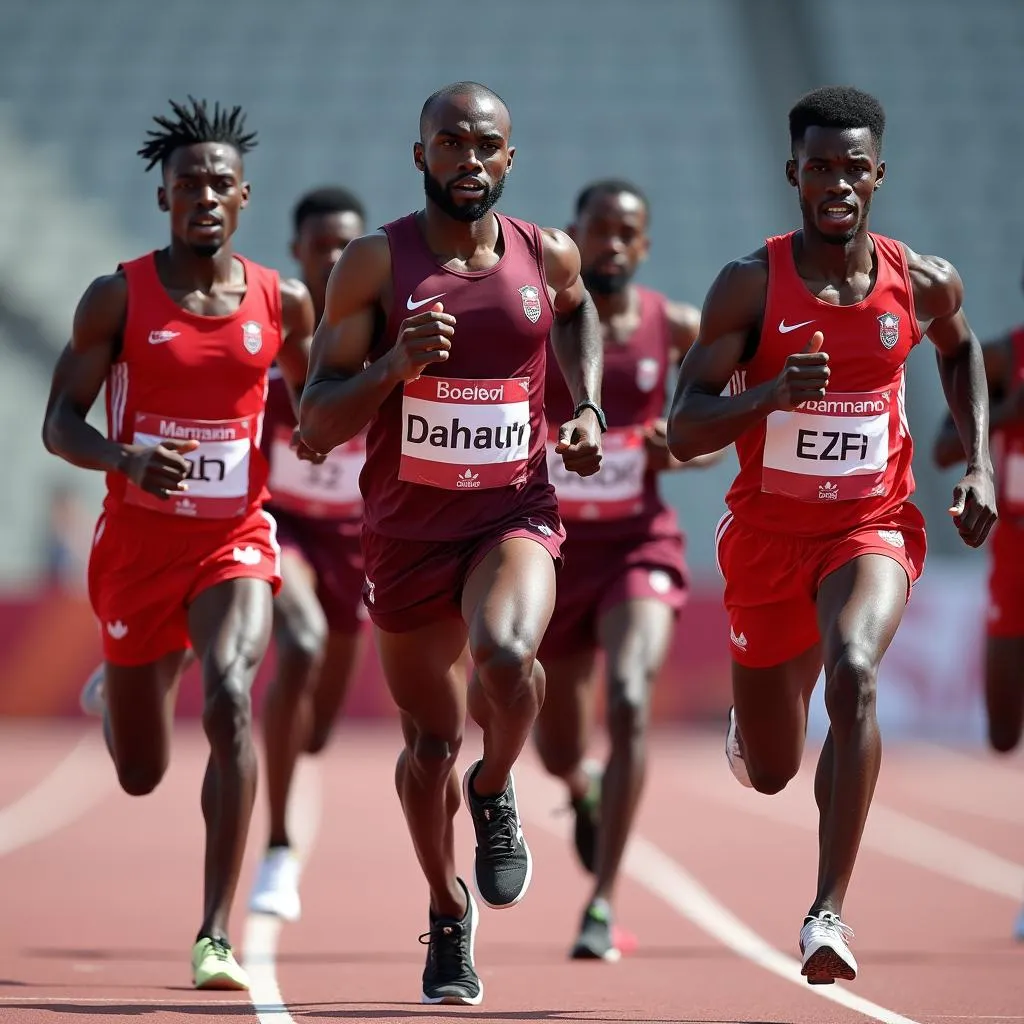African Athletes Competing for Bahrain and Qatar: A Look at the Phenomenon
The rise of African Athletes Competing For Bahrain And Qatar has become a prominent feature of international athletics, particularly in middle-distance and long-distance events. This phenomenon has sparked discussions about nationality, loyalty, and the pursuit of sporting success. This article delves into the complexities surrounding African athletes choosing to represent these two Gulf nations, exploring the underlying motivations, historical context, and implications for the sport.
Reasons Behind the Shift in Allegiance
Several factors contribute to the decision of African athletes to represent Bahrain and Qatar:
- Financial Incentives: Athletes from developing nations often face limited resources and opportunities for training and competition. Bahrain and Qatar offer lucrative financial rewards, world-class training facilities, and comprehensive support systems, making them attractive destinations for aspiring athletes.
- Nationality Laws: Both countries have relatively lenient naturalization policies, allowing athletes to switch allegiance after a specific residency period. This accessibility provides a pathway for African athletes to compete at the highest level.
- Coach and Training Expertise: Bahrain and Qatar have invested heavily in coaching expertise, bringing in renowned trainers from around the world. These coaches, coupled with advanced training facilities, create a favorable environment for athletes to improve their performance.
- Political Influence: Both countries use sports as a platform for global influence and soft power. Attracting top athletes from other countries enhances their national image and strengthens their presence in international sporting events.
A Glimpse into History
The trend of African athletes competing for Bahrain and Qatar can be traced back to the 1990s. In 1999, Bahrain granted citizenship to a number of Kenyan runners, marking a significant turning point. This was followed by a series of similar naturalizations by both countries, further solidifying their presence on the world stage.
Impact on International Athletics
The influx of African athletes has undoubtedly raised the competitive bar in international athletics. They have achieved remarkable success, securing numerous medals and breaking records in major competitions. However, the phenomenon has also raised ethical and sporting concerns:
- Fairness and Competition: Some argue that the influx of naturalized athletes creates an uneven playing field, giving certain countries an unfair advantage.
- National Pride: There are concerns that these athletes may not fully identify with their adopted countries, leading to questions about national pride and loyalty.
- Loss of Talent: Developing nations lose some of their most talented athletes, hindering their own sporting development.
The Future of African Athletes in Bahrain and Qatar
The trend of African athletes competing for Bahrain and Qatar is likely to continue. As both countries continue to invest in athletics and offer attractive incentives, they are likely to attract more talented athletes from across the continent. However, it is important to acknowledge and address the ethical considerations associated with this phenomenon, ensuring that the principles of fair play and sportsmanship are upheld.
“The rise of African athletes in Bahrain and Qatar is a complex issue with a blend of motivations and implications. It is essential to analyze the situation with a nuanced perspective, considering both the opportunities and challenges it presents.” – Dr. Amina Mohamed, Sports Anthropologist
FAQ
1. Are African athletes forced to switch their allegiance to Bahrain and Qatar?
No, athletes choose to represent these countries voluntarily, often seeking better opportunities and support.
2. Are there any limitations on the number of naturalized athletes a country can field?
While there are no strict limitations, the International Association of Athletics Federations (IAAF) has established guidelines for eligibility and residency requirements.
3. What are the benefits for Bahrain and Qatar in attracting African athletes?
It enhances their global profile, strengthens their standing in international sporting events, and provides opportunities for national pride.
4. Are there any African countries that oppose their athletes competing for other nations?
Some countries have expressed concerns about the potential loss of talent and have implemented measures to encourage athletes to remain loyal to their country of origin.
5. What is the future outlook for African athletes in Bahrain and Qatar?
The trend is likely to continue, particularly as both countries continue to invest in athletics and offer competitive incentives.
 African Athletes Competing for Bahrain and Qatar
African Athletes Competing for Bahrain and Qatar
Conclusion
The decision of African athletes to compete for Bahrain and Qatar is a complex and multifaceted issue, reflecting the changing dynamics of global sports. It is a phenomenon that raises significant questions about nationality, loyalty, and the pursuit of sporting success. While it has contributed to a more competitive landscape in athletics, it is essential to consider the ethical implications and ensure that the spirit of fair play and sportsmanship remains at the heart of the sport.
